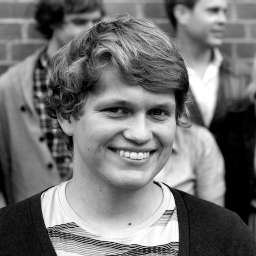The name Lulu gives certain responses in operatic circles. Most will think of Alban Berg’s final, unfinished opera and its femme fatale title character. Few, if any, will think of the title character of an opera by German-born Danish composer Friedrich Kuhlau which, save a 1988 recording, was last performed in 1838. The Royal Danish Opera and Christan von Götz's production of Kuhlau’s Lulu might not change that, but – despite some irritating cuts – it still proves a perfectly charming piece.
Today, Kuhlau is not terribly well known outside of his adopted Denmark, apart from among flautists and the odd pianist. In addition to vast amounts of chamber music, Kuhlau also had a considerable operatic output, of which Lulu was his fifth. The opera is an adaptation of an 18th-century German fairy tale, Lulu, or The Magic Flute. This story also inspired Mozart’s Zauberflöte, and there is more than the occasional similarity in plot. Kuhlau’s Lulu tells the story of Prince Lulu, who is tasked by Periferihme, Queen of the Fairies, to save her daughter Sidi, who has been captured by the evil wizard Dilfeng. To help him on his journey, Periferihme gives Lulu a magic flute which will protect him from any harm. So far, so Mozart.
In its plot, Lulu resembles The Magic Flute, but lacks its moral ambiguity and masonic elements. On the surface, at least, Lulu is a standard rescue drama, but in director Christian von Götz's hands, it becomes a comically poignant exploration of death and identity. Here, Sidi is a mortally ill young girl who creates an imaginary world as an escape from her illness, casting herself as the damsel in distress. It is a weird and wonderful world of badminton-playing fairies and flamboyant villains, flanked by disco-dancing, knitting witches. Despite the quirky staging, the plot jolts unnecessarily because much of the spoken dialogue appears to have been cut. While a synopsis might be printed in the programme, the onstage narrative felt unclear.
Death – a glum Wednesday Addams-like character played by dancer Siri Wolthoorn – is always lurking around the corner, a constant reminder that Sidi will – and must – die. The tragic heroine is the most well-worn of operatic clichés, but here, Death and Sidi’s mother Periferihme are the same character. Death is silent and Periferihme is only spoken – it is as if she is the only link to the real world, not taking part in the music because she has no part in it.
Götz also wants to draw comparisons between the character of Sidi – dying and inserting herself into the story – and that of Lulu – a prince tasked with rescuing a princess. From the very beginning, Lulu is shown with long, dark, flowing hair, remarkably similar to descriptions of Sidi, and wearing a skirt. As the opera progresses, Lulu’s skirts grow in length until, in the final scene, he wears the same dress as Sidi. As Sidi is dragged away by Death, Lulu remains. The main character becomes Sidi, a dying child, narrating her own death.
Kuhlau’s music owes much to Weber, yet in the many ensembles, more than a little low-fat Rossini is added for good measure. Mozart and Beethoven also loom large, yet the primary driving force, vocal pyrotechnics aside, is tuneful melodies as well as surprisingly colourful, woodwind-heavy orchestration. Sébastien Rouland whipped the Royal Danish Orchestra along in a very sprightly, if somewhat too uniformly loud, overture, and generally kept the pace pleasantly high. The many woodwind solos were wonderfully played, especially the flute solos from the balcony.
As Lulu, tenor Gert Henning-Jensen seemed a bit unsteady at first, but soon warmed up and sang with a characteristically bright sound, even though his quasi-Rossinian roulades leant towards approximation. Bass Henning von Schulman relished his stint as the comically evil wizard, Dilfeng. Prancing around in an oversized red cape and a ruff pulled half-way across his face, he looked like a camp cardinal and sang his empty threats at Sidi with increasing delight. As Sidi, Dénise Beck sounded radiant, if occasionally a little underpowered. She had been announced as slightly under the weather, but her voice bore little trace of that, with impressively executed runs and gleaming high notes. She also proved herself a very graceful dancer, moving elegantly across the stage in her dance with death.
Sunday’s matinée performance was only the 37th performance since the 1824 première. Lulu is hardly a towering masterpiece, yet the opera has more than its fair share of charming melodies and colourful bursts of early 19th-century orchestration. Perhaps it’s not enough to earn it a place in the core repertoire, but it would be a shame if another 180 years went by before its next performance.


